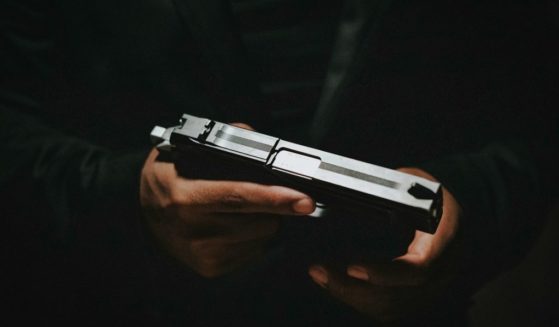US Military Adds Over 4,000 Names of Dishonorably Discharged Service Members to Firearm Ban List
The Sutherland Springs church shooting rocked the nation in 2017 and opened the eyes of many to the glaring faults in the FBI’s background check system. Now, the names of over 4,000 dishonorably discharged military personnel have been added to a list of people barred from purchasing firearms.
In an apparent attempt to prevent such a tragedy from occurring again, it has been discovered that the backlog is now so extensive that in just three months the tally of names on the gun ban list sits at 4,284, a 38% jump.
In 2015, the number of dishonorably discharged military personnel on the list tallied near 11,000. That number increased to 14,825 in November and now sits at 15,597.
While the U.S. military’s rush to add over 4,000 names to the list is a promising move, some, such as U.S. Rep. Scott Taylor of Virginia, are concerned that the names weren’t added to the list sooner.
“I’m encouraged that they’re trying to hurry up and get through this backlog. But it was a failure of duty and responsibility to not report these people to the federal database. I’m highly disappointed,” Taylor said.
A 2017 inspector general report found that the military failed to report 31 percent of cases to the FBI’s National Instant Criminal Background Check System. However, the spike of 4,000 names being added to the list is a potential sign that the U.S. military is starting to catch up to the extensive backlog.
Rob Pincus, a firearm training expert and owner of I.C.E. Training Company, is optimistic about the recent addition of names to the list, but remains skeptical of its long-term effectiveness against mass shootings.
“The NICS System relies on accurate and timely reporting to be effective. Of course, it is a good thing the Department of Defense is addressing the back log (sic) and will most likely be more diligent in the future,” Pincus, who has worked extensively with active military personnel and veterans, told The Western Journal. “The fact remains, however, that it is incredibly unlikely that someone who is capable of conducting a mass killing or church shooting is going to be stopped by the restrictions imposed by being listed as a ‘prohibited person.'”
He added: “If you’re willing to kill school children, you will find a way that doesn’t involve showing your ID.”
Shortly after Devin Kelley massacred 26 churchgoers on Nov. 5, 2017, it was discovered that he had been ousted from the U.S. Air Force for assaulting his wife.
As noted by the Fort Worth Star-Telegram, federal law prevents dishonorably discharged military personnel from purchasing a firearm. However, since Kelley received a bad conduct discharge, he wouldn’t have been barred from purchasing a firearm.
What’s more, it was later discovered that the U.S. Air Force failed to submit Kelley’s bad conduct discharge to the NICS, CNN reported.
After this discovery, the Defense Department pushed to ensure that the background check system was properly updated for all of its branches to ensure that a mistake like the aforementioned would be avoided in the future.
CNN reached out to the five branches of the military for comment and was told by the Air Force, Navy and Marine Corps that records were being diligently searched through.
“We are in the process of conducting a thorough review of past cases to ensure that any prior failures to report are rectified and the appropriate information is provided to the FBI,” Capt. Christopher R. Harrison, a spokesperson for the Marine Corps said.
The U.S. Navy revealed that it was conducting an inspection of cases that date back to 1998, and in December Air Force Secretary Heather Wilson notified Congress that the military branch is reviewing reports dating back to 2002.
Truth and Accuracy
We are committed to truth and accuracy in all of our journalism. Read our editorial standards.












